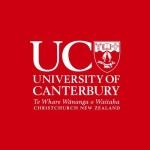A danger Christchurch's past will be forgotten, UC lecturer says
There is a danger that most ongoing memories about Christchurch will just be about the city’s earthquakes and not the great things that once stood in the 162 years beforehand, a University of Canterbury (UC) researcher said today.
UC lecturer Katie Pickles says Christchurch had a glittering history before the quakes that deserves not to be forgotten. Associate Professor Pickles would run a summer school to document people, places, buildings and events of the past.
``We must make sure that the sum total of its history does not become the quakes. This is a time for the rapid and fast-paced re-assessment of the city’s history. A lot of post-quake history myths have emerged that involve people conjuring historical fictions to make sense of their loss.
``Often, the past is being simplified. Such as, there was only one Cathedral. What about the Catholic one? What of the many destroyed churches of various denominations? What about the history of the suburbs, rather than the centre of the city?
``There are also some clinging to the past and thinking that we can put things back as they were. How they often consider they were is Christchurch in the late 1800s rather than the early 21st century. Just before the quakes the city was a modern place with lots of cars, shopping malls and American and Australian-style suburban developments. It wasn’t a neo-gothic village.’’
People would soon forget the grand ANZ Chambers building on the corner of High Lichfield Streets and other landmark iconic buildings sites, she said. Fewer people remember the trams that used to take beach-goers to Sumner or sightseers to the Sign of the Takahe on Cashmere.
Associate Professor Pickles said the summer course would go searching for and recover what the city used to be like. The history of radical communes, peace protesters, Saturday shopping at New Brighton and public toilets would be studied alongside the traditional ‘first four ships’ narratives of colonisation and settlement.
``We want to seize the opportunity to examine Christchurch’s history in rigorous ways that will do justice to the past.
``We want to foster and preserve the diverse archival sources of the past and this is where we have a lesson for the rest of New Zealand and further afield to maintain, back up and digitise archives.
``We need to treasure and cherish them and keep them primary – that is as raw material that can be interpreted and reinterpreted in multiple ways rather than as iconic objects of capture a moment and become ubiquitous history for marketing the present and future through the past.
``We live in challenging times. Whatever the wrecking ball delivers, as historians we must remember that we are equipped with the tools to recover the past and to keep on doing so. If we stop creatively sniffing around in the past, offering up new best-guesses as to what it was like, then it will be over and out for history. Let’s hope that the quakes reinvigorate Christchurch urban history, rather than shut it down.’’
As Christchurch considers its future, this course would remember its history, she said. The city is forced to plan for its future and knowing about the past was vital to help get the rebuild right.
Students in the course will be working with old films, letters, newspapers, monuments, and official records as their sources.
